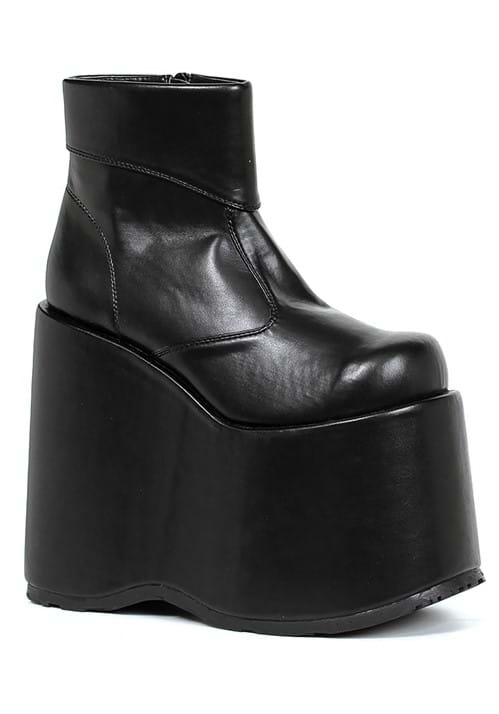by Rabbi Yair Hoffman for the Sefas Tamim Foundation
Dear Rabbi Hoffman, shlita
I have a question regarding Shidduchim: A Shadchan wanted to set up a tallish woman with a shorter young man. The shadchan wanted to buy the young man elevator shoes so that they would end up dating. Not wishing to embarrass the young man that he was buying the elevating shoes himself, he told the bochur that there is a G’mach in Lakewood for these situations, and that he just needed to know the bochur’s shoe size. Was the Shadchan allowed to lie about this and in general what is the halacha with elevator shoes? Is it G’neivas Daas? Also, is there a difference between men and women in this regard? It seems that it is not easy to hide the nature of ladies elevator shoes, but it is very easy to fool people with men’s elevator shoes.
ANSWER: It happens to be an excellent question. The Shadchan was permitted to say that there was a G’mach in Lakewood for these situations to avoid embarrassing the young man (See Teshuvos HaRosh 82:1). As far as the general question, we reached out to a number of contemporary Poskim, who had a wide variety of opinions. But before we share them, let’s take a look at some classical meforshim on a relevant Gemorah.
There is a Gemorah in Yevamos (45a) wherein a young man of a dubious but kosher lineage asked Rav Yehudah what to do about his difficult Shidduch situation. Rav Yehudah offered two pieces of advice, and one of them was to go where no one knew him and seeka shidduch there. The question arises as to how Rav Yehudah could have given advice that would seem to be gneivas daas?
We find the following answers cited by Rav Yaakov Unsdorfer from Montreal in his Olalei Yaakov Vol. III:
- Many Poskim are of the opinion that when there is no monetary issue involved, the prohibition of Gneivas Daas is of Rabbinic origin. In order to fulfill the Mitzvah of Pru uRvu, the Chasam Sofer (Yevamos 45a “Dekulo Amorai”) writes that it is permitted.
- The Steipler Gaon zt”l, father of Rav Chaim Kanievsky zt”l, writes that Chazal never enacted the prohibition when it comes to Pru urVu (See Kihilas Yaakov Siman 44 “v’Gam efshar”). He further writes that there is an Umdenah – a general certitude that once a woman has agreed to marry and has gone through it she would not wish to divorce on this account. According to this, if it is clear that the woman would have wanted to divorce on account of some defect then it would be forbidden.
- Rav Yoseph Chaim Sonnenfeld zt”l in his Salmas Chaim Siman 242 writes that from the women’s perspective [perhaps at that time] the woman wishes to be married so much that there is a veritable “don’t ask don’t tell” perspective and as long as no one knows, it would be permitted.
Applying these to elevator shoes, according to the Chasam Sofer there would not be a problem. According to the Steipler it would also seem to be permitted. According to Rav Yoseph Chaim Sonnenfeld, however, it would be forbidden.
What did the contemporary Poskim rule? Rav Yisroel Dovid Harfenes shlita ruled that it would be permitted. Rav Hershel Ausch shlita forbade it for men but permitted it for women because for men it is is not readily detectable, but for women it is readily detectable.
The author can be reached at [email protected]
Why not subscribe to a weekly parsha sheet that deals with Emes – written by Rabbi Yair Hoffman? Send an email with the word “Subscribe” in it to [email protected]












One Response
Elevator shoes are a well known machlokes between Rav Isser Zalman and Rav Ahron Ztl.